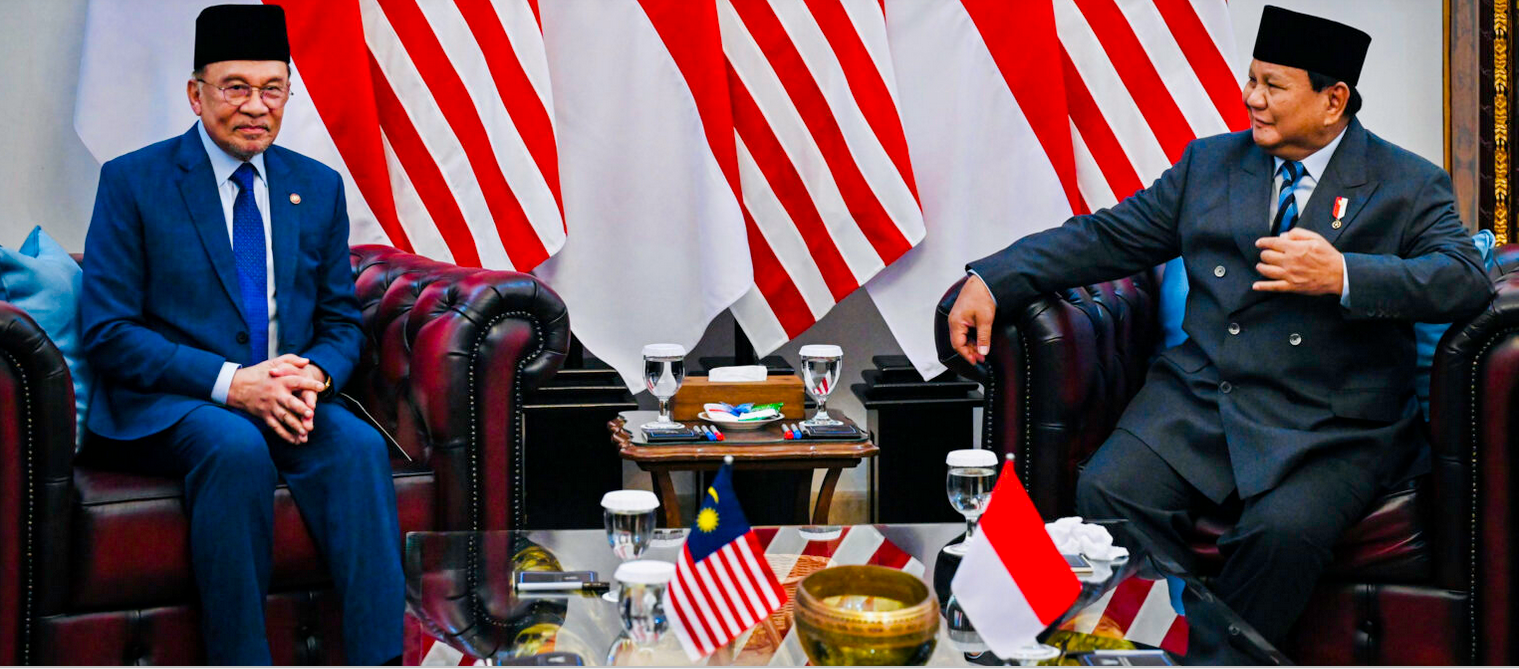Gov’t to Anticipate Staple Food Demand during COVID-19 Pandemic

Cabinet Secretary Pramono Anung listens to President Jokowi’s directives in a Limited Meeting on Staple Food Demand, Tuesday (21/4). (Photo by:PR/Agung)
President Joko “Jokowi” Widodo on Tuesday (21/4) gives several anticipatory measures to meet people’s demand for staple foods considering the Food and Agriculture Organization (FAO) had warned that the COVID-19 pandemic will bring global food crisis.
“Therefore, all countries particularly rice producing countries will prioritize their own needs, their domestic demand for staple food. In addition, food supply chain will be disrupted due to lockdown policy. Thus, lockdown policy will affect food supply chain,” President Jokowi said when leading a Limited Meeting.
For that reason, the President underlined several points of note:
First, the availability of staple food must be ensured.
“Do calculate our national rice production, calculate the estimated rice production during drought season. Also calculate for how long we can still use our rice reserve, calculate it carefully,” he said.
The Head of State also reminded the related parties not to overestimate it, calculate it carefully and in details based on valid and reliable empirical data.
Second, supply chain should be based on the dynamics of people’s need.
“Do ensure the protection of farmers in the supply chain. Perform good governance to avoid deceptive practices. I also instruct food task force to coordinate with the police in supervising supply chain and food stock,” he added.
Third, staple food should be maintained at affordable price.
“There should be no price increase. In fact, the price of rice slightly goes up. There has been no change of the price of sugar, instead, the price increases to Rp19,000. The price of garlic and onion have not returned to normal,” he stated.
On the occasion, he mentioned that although the price of dry unhusked rice reduced by 5 percent, the price of rice increased by 0.4 percent.
“What is going on? Please monitor the price. Do monitor it, there must be something wrong, since a decrease in the price of dry unhusked rice means a lower price of rice. It indicates that the farmers do not get any profit, while the price of rice increases and hurts the people. Who is profiting from this? Go find it out,” the President firmly said.
According to the President, in the second week of April, the price of several commodities was still high, such as meat, bird’s eye chili, shallot, garlic, and sugar. Meanwhile, the price that went down was chicken.
Fourth, use the situation during COVID-19 pandemic as a momentum to undertake massive reform in our country’s food policy.
(FID/EN)
Translated by : Rany Anjany S
Reviewed by: Mia Medyana








